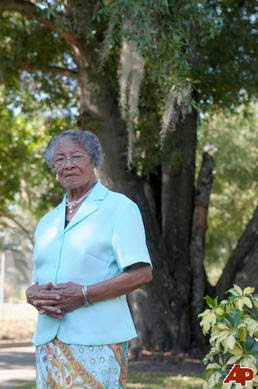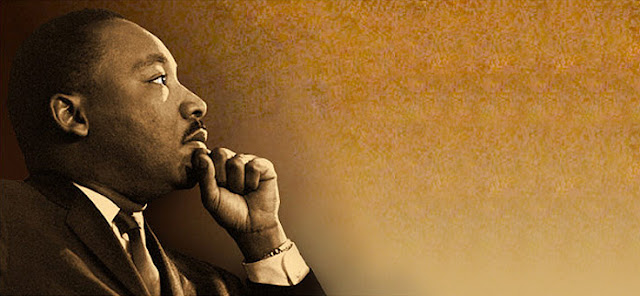Recy Taylor
In the early 20th century, rapes of black women by white men were common. The victims were expected not to go to police, a vile aftereffect of the slave days, when humans were owned and their owners could do with them as they wished.
In 1944, Rosa Parks investigated a brutal gang rape in a small Alabama town
Recy Taylor December 31, 1919 – December 28, 2017 was an African American woman from Abbeville, Alabama She was born and raised in a sharecropping family in the Jim Crow era Southern United States. Taylor's refusal to remain silent about a brutal rape she suffered, perpetrated by white men, led to organizing in the African-American community on behalf of justice and civil rights. who was abducted and raped on her way home from a church in 1944 by six armed white men when she was 24 years old..
The incident was eventually reported to the National Association for the Advancement of Colored People, who gave the case to Rosa Parks, the activist and civil rights icon best known for refusing to give up her seat on a segregated bus in 1955. With segregation and inequality working against them, however, Taylor's attackers were never prosecuted.
By The Washington Post:
She was walking home from a church revival in her small Alabama town on the evening of Sept. 3, 1944, when a green Chevrolet filled with white men pulled up.
Recy Taylor tried to run, but one of the men grabbed the 24-year-old black mother and forced her into the sedan. She was driven into a grove of pine trees, where, one by one, six men brutally raped her, threatening to cut her throat if she cried out, according to state records.
A few days later, news of the horrendous gang rape reached the office of the National Association for the Advancement of Colored People office in Montgomery. The NAACP sent its best investigator to Abbeville, Alabama, to find out why there had been no arrests.
That investigator's name was Rosa Parks.
More than a decade before Parks became a civil rights hero for refusing to give up her bus seat to a white man, Parks led a national campaign against sexual assaults on black women.
Taylor's rape is the subject of a new documentary that coincides with a wave of sexual assault and harassment accusations against powerful men. But in 1944, obtaining justice for a black woman in the segregated South was nearly impossible.
Rosa Parks was 31 when the NAACP sent her to Abbeville. She was propelled by her own experience with sexual assault. In an autobiographical sketch contained in her personal papers, she described how a white male neighbor had tried to rape her in 1931.
"He offered me a drink of whiskey, which I promptly and vehemently refused," Parks wrote. "He moved nearer to me and put his hand on my waist. I was very frightened by now."
Parks resisted. "I was ready to die but give my consent never. Never, never."
In Abbeville, Parks found Taylor at her home, a cabin on a sharecropper's plantation. Parks took notes as Taylor described the assault.
After the men raped Taylor, they blindfolded her and left her on the side of a deserted road.
"After they messed over and did what they were going to do me, they say, 'We're going to take you back. We're going to put you out. But if you tell it, we're going to kill you,' " Taylor, remembered in a 2011 interview with NPR's Michelle Martin when Taylor was 91.
About 3 a.m., Taylor's father, who had been out searching for her, saw his daughter staggering along the highway.
Recy Taylor's friend, Fannie Daniel, who witnessed the abduction, had already reported the kidnapping to Will Cook, a former police chief who also owned a store. Taylor and her father reported the assault to the then-local county sheriff, Lewey Corbitt.
One of the assailants, Hugo Wilson, confessed to the rape and named six other men involved: Dillard York; Billy Howerton; Herbert Lovett; Luther Lee; Joe Culpepper and Robert Gamble.
None of the men were arrested.
As Parks interviewed Taylor, Corbitt kept driving by the house, according to the book "At the Dark End of the Street: Black Women, Rape, and Resistance."
The sheriff finally burst into Taylor's house, demanding that Rosa Parks leave. "I don't want any troublemakers here in Abbeville," he said. "If you don't go, I'll lock you up."
Parks returned to Montgomery, where she promptly launched the Alabama Committee for Equal Justice for Mrs. Recy Taylor. The committee flooded the South with fliers "decrying white attacks on black women," according to the Chicago Defender.
By October 1944, Taylor's rape was making headlines across the country. The Chicago Defender's headline, "Victim of White Alabama Rapists," ran above a now-famous photo of Taylor sitting on a sofa, dressed in a hat and checkered blazer with her daughter, Jayce, on her lap and her husband, Willie Guy Taylor, beside her.
In the story, the Defender's staff correspondent Fred Atwater reported that the lawyer representing the suspects in the case had offered $600 to Willie Guy Taylor to silence his wife. "Nigger - ain't $600 enough for raping your wife," the story quoted the lawyer saying. The six defendants were willing to pay $100 each "if Recy Taylor would forget."
On Oct. 9, 1944, a grand jury refused to indict the men. Outraged, Parks urged people to write protest letters to then-Alabama Gov. Chauncey Sparks. Hundreds of letters of outrage began pouring into the governor's office.
Parks sent a letter of her own on Alabama Committee for Equal Justice letterhead to the governor:
"As a citizen of Alabama, I urge you to use your high office to reconvene the Henry County Grand Jury at the earliest possible moment," Parks wrote. "Alabamians are depending upon you to see that all obstacles, which are preventing justice in this case, be removed. I know that you will not fail to let the people of Alabama know that there is equal justice for all of our citizens."
The letter was signed: "Respectfully yours, Rosa L. Parks, 22 Mill St., Montgomery, Ala."
In response, Sparks ordered another investigation of the rape. On Feb. 14, 1945, a Henry County grand jury refused to indict the suspects for a second time. The men were never prosecuted.
Six years ago, Alabama lawmakers finally issued an apology for what Taylor had endured. "That we acknowledge the lack of prosecution for crimes committed against Recy Taylor by the government of the State of Alabama," the resolution read. "That we declare such failure to act was, and is, morally abhorrent and repugnant, and that we do hereby express profound regret for the role played by the government of the State of Alabama in failing to prosecute the crimes."
“The Rape of Recy Taylor”: How Rosa Parks Helped a Sharecropper Report Her Assault & Seek Justice
Oprah's Golden Globes speech about Recy Taylor





























































